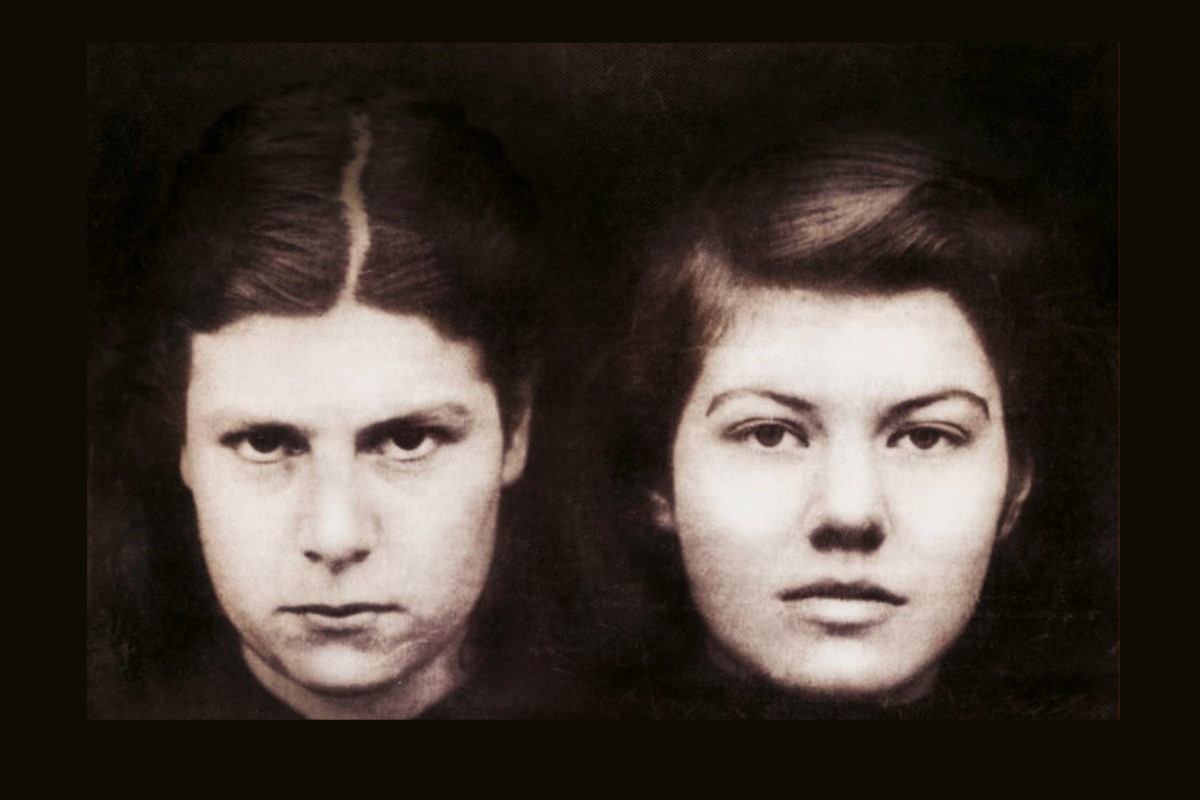
Pauline Parker and Juliet Hulme are names that echo through history due to their infamous crime in 1954. These two teenage girls from New Zealand shocked the world when they were convicted of murdering Parker's mother, Honora Rieper. Their story has inspired books, movies, and endless speculation. But who were they beyond this tragic event? What led to their intense friendship and eventual crime? In this post, we'll dive into 36 intriguing facts about Pauline Parker and Juliet Hulme, shedding light on their backgrounds, the crime, and their lives afterward. Get ready to uncover the lesser-known details of this chilling case.
Key Takeaways:
- Pauline Parker and Juliet Hulme's intense friendship led to a shocking crime, but their post-prison lives took very different paths, with Juliet becoming a successful crime novelist and Pauline living a reclusive life in England.
- The story of Pauline Parker and Juliet Hulme has left a lasting impact on popular culture, inspiring films, books, and discussions about the psychology of adolescent friendships and shared psychotic disorders.
Early Life and Background
Pauline Parker and Juliet Hulme's early years set the stage for their infamous story. Here are some intriguing details about their beginnings.
- Pauline Parker was born on May 26, 1938, in Christchurch, New Zealand.
- Juliet Hulme, born on October 28, 1938, in London, England, moved to New Zealand at a young age.
- Pauline's family was working-class, while Juliet's father was a prominent physicist.
- Juliet suffered from tuberculosis as a child, leading to her being sent to warmer climates for recovery.
- Pauline had osteomyelitis, a bone infection, which caused her to miss school frequently.
Meeting and Friendship
Their friendship began in their teenage years and quickly became intense and all-consuming.
- Pauline and Juliet met at Christchurch Girls' High School in 1952.
- Both girls shared a passion for writing and creating fantasy worlds.
- They developed an elaborate imaginary kingdom called Borovnia.
- Their friendship was so intense that it worried their parents and teachers.
- They often wrote stories and plays together, featuring characters from their imaginary world.
The Crime
The crime that Pauline Parker and Juliet Hulme committed shocked the world. Here are the key facts about that fateful day.
- On June 22, 1954, Pauline and Juliet murdered Pauline's mother, Honora Parker.
- They planned the murder meticulously, believing it would allow them to stay together.
- The murder weapon was a half-brick wrapped in a stocking.
- They lured Honora to Victoria Park in Christchurch, where the attack took place.
- After the murder, they initially claimed Honora had fallen and hit her head.
Trial and Sentencing
The trial of Pauline Parker and Juliet Hulme was a media sensation. Here are the details of what happened in court.
- The trial began on August 23, 1954, and lasted six days.
- Both girls were found guilty of murder on August 28, 1954.
- They were too young for the death penalty, so they were sentenced to be detained "at Her Majesty's pleasure."
- Pauline was sent to Paparua Prison, while Juliet was sent to Mount Eden Prison.
- Their trial was one of the first in New Zealand to be extensively covered by the media.
Life After Prison
After serving their sentences, both women went on to lead very different lives. Here are some facts about their post-prison years.
- Juliet Hulme was released in 1959 and moved to the United Kingdom.
- She changed her name to Anne Perry and became a successful crime novelist.
- Pauline Parker was released in 1965 and took on the name Hilary Nathan.
- Pauline moved to a small village in England and lived a reclusive life.
- Neither woman has ever publicly reunited or spoken about each other since their release.
Cultural Impact
The story of Pauline Parker and Juliet Hulme has had a lasting impact on popular culture. Here are some ways their story has been retold.
- The 1994 film "Heavenly Creatures," directed by Peter Jackson, is based on their story.
- Kate Winslet played Juliet Hulme, and Melanie Lynskey portrayed Pauline Parker in the film.
- The case has inspired numerous books, articles, and documentaries.
- Their story is often cited in discussions about the psychology of adolescent friendships.
- The murder has been referenced in various TV shows and true crime podcasts.
Psychological Aspects
The psychological aspects of Pauline and Juliet's relationship have fascinated experts and the public alike. Here are some insights.
- Their intense friendship is often described as folie à deux, a shared psychotic disorder.
- Both girls were highly intelligent and imaginative, which fueled their bond.
- Their relationship was marked by a sense of exclusivity and isolation from others.
- Experts believe their shared fantasy world blurred the lines between reality and imagination.
- The murder is seen as an extreme outcome of their inability to separate from each other.
Legacy
The legacy of Pauline Parker and Juliet Hulme's story continues to intrigue and disturb. Here are some final thoughts on their impact.
- Their case remains one of New Zealand's most infamous crimes, still studied and discussed today.
The Final Takeaway
Pauline Parker and Juliet Hulme's story is a chilling reminder of how intense friendships can spiral into dark places. Their crime shocked New Zealand and continues to fascinate people worldwide. Both women served their sentences and went on to lead separate lives under new identities. Parker became a devout Catholic, while Hulme found success as a crime novelist under the name Anne Perry. Their tale has inspired books, movies, and endless speculation. It’s a stark example of how real-life events can sometimes be stranger than fiction. Understanding their story helps us grasp the complexities of human relationships and the potential consequences of unchecked emotions. Whether you view them as victims of circumstance or perpetrators of a heinous act, their story remains a compelling chapter in true crime history.
Frequently Asked Questions
Was this page helpful?
Our commitment to delivering trustworthy and engaging content is at the heart of what we do. Each fact on our site is contributed by real users like you, bringing a wealth of diverse insights and information. To ensure the highest standards of accuracy and reliability, our dedicated editors meticulously review each submission. This process guarantees that the facts we share are not only fascinating but also credible. Trust in our commitment to quality and authenticity as you explore and learn with us.


